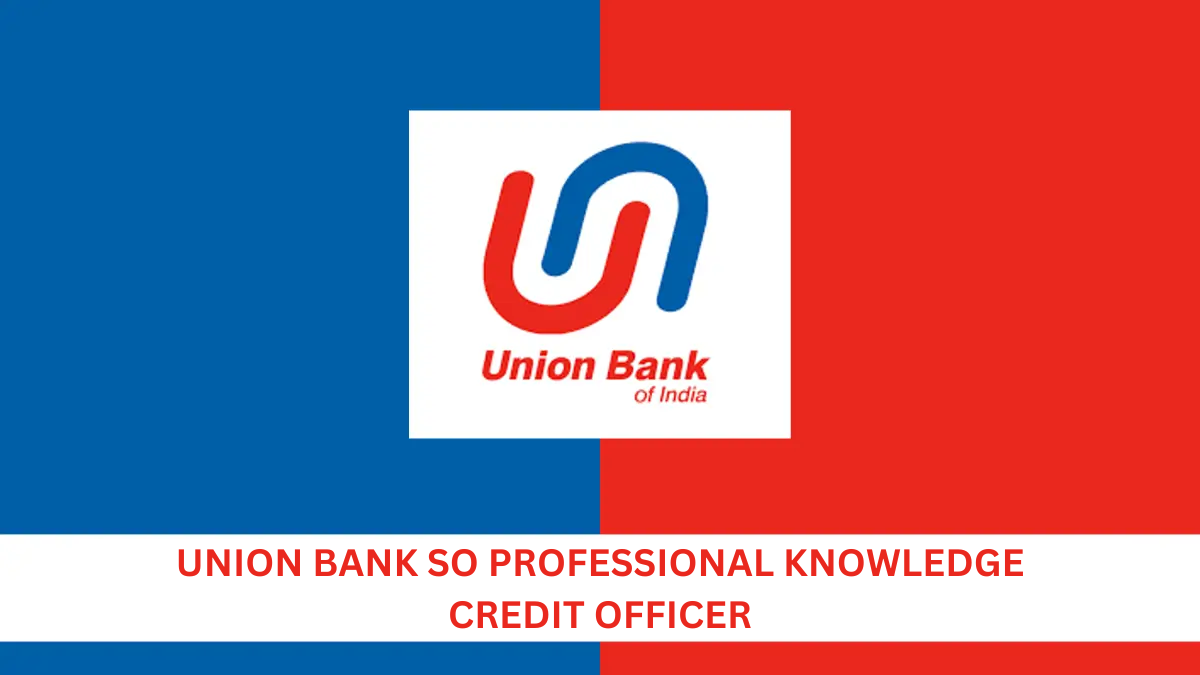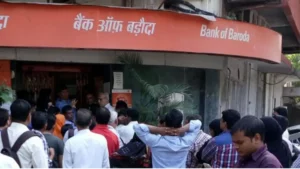The Union Bank Specialist Officer (SO) exam for the post of Credit Officer tests your knowledge of banking, finance, and lending. A Credit Officer’s main job is to check loan applications, decide if borrowers can repay, and manage risks. The Professional Knowledge section focuses on your understanding of banking rules, how loans work, financial basics, and laws related to lending. Knowing these ideas well is important not only to pass the exam but also to do well in the actual job.
Union Bank SO Professional Knowledge
This article will explain the important topics that come in the Professional Knowledge section for the Union Bank SO Credit Officer role. It covers banking basics, different types of loans, the rules to follow before giving loans, ways to check if a borrower can repay, how to read financial statements, and the important banking laws. Each topic is explained simply to help you understand how banks work and how you can prepare for the exam with confidence.
Different Types of Loans and Credit
Credit officers should know the kinds of loans banks give. These include:
Term Loans: Loans given for a fixed time period with regular payments. Used for buying machines or setting up a business. Each loan type has different risks and rules. The credit officer studies these before approving loans.
- Cash Credit: Short-term loans given to businesses to manage daily expenses. It’s given against stock or invoices.
- Overdraft: This lets account holders withdraw more than their balance up to a limit.
- Bill Discounting: Loan given against bills or invoices before their due date.
- Project Finance and Syndicated Loans: Large loans given to big projects, sometimes shared by many banks.
Rules to Follow When Giving Loans
Banks follow some basic rules to reduce the chances of losing money when giving loans. These rules are called the principles of lending. Credit officers use these rules to decide if a loan application is good or not.
- Safety: The loan must be safe and repaid on time.
- Liquidity: The borrower should have cash or assets that can be quickly sold.
- Purpose: Loans should be given for genuine reasons and with clear repayment plans.
- Security: Loans must be backed by collateral or something valuable.
- Profitability: The loan should help the bank earn a fair return.
- Diversification: Banks avoid giving too much loan to one person or sector to reduce risk.
How to Check Loan Applications and Assess Risk
A credit officer’s main job is to check if a borrower can repay the loan. This is called credit appraisal. It includes studying the borrower’s financial health and business plans. By carefully checking these points, the bank can avoid giving loans that might not be paid back. The credit appraisal process looks at:
- Financial Statements: Checking profit and loss, balance sheets, and cash flow to see if the business is doing well.
- Credit Score: A number that shows how risky the borrower is based on past borrowing history.
- Collateral Value: How much the security is worth and if it can be sold if the borrower does not pay.
- Industry Risk: How the borrower’s business is affected by market conditions.
- Management Quality: Checking if the borrower has a good history of managing business and repaying loans.
Important Banking Rules and Guidelines
Credit officers must know the banking laws and rules made by the Reserve Bank of India (RBI) and other authorities. These include:
- Know Your Customer (KYC): Rules to check the identity of customers and prevent fraud.
- Priority Sector Lending (PSL): Rules that say banks must give loans to farmers, small businesses, and weaker sections.
- Non-Performing Assets (NPA): Rules for identifying bad loans and making provisions for them.
- Basel Norms: International rules about how much capital banks must keep to cover risks.
- Credit Information Companies: Using credit bureaus to check borrowers’ credit history.
Why Financial Ratios Matter
Financial ratios help credit officers understand how strong a borrower’s finances are. Credit officers use these numbers to decide if a loan is safe to give. Some important ratios are:
- Current Ratio: Shows if the borrower can pay short-term debts.
- Debt to Equity Ratio: Shows how much money is borrowed versus owned by the borrower.
- Interest Coverage Ratio: Shows if the borrower can pay interest on loans from their profits.
- Return on Assets and Equity: Measures how well the borrower uses their resources to earn money.
| Related Posts | |
| Union Bank SO Syllabus | Union Bank SO Salary |
| Union Bank SO Previous Year Question Papers | |




 RBI Assistant 2026 Notification Out, 650...
RBI Assistant 2026 Notification Out, 650...
 Bank of Baroda Peon Admit Card 2026 Out,...
Bank of Baroda Peon Admit Card 2026 Out,...
 CCP Memory Based Questions 2026, Check Q...
CCP Memory Based Questions 2026, Check Q...








